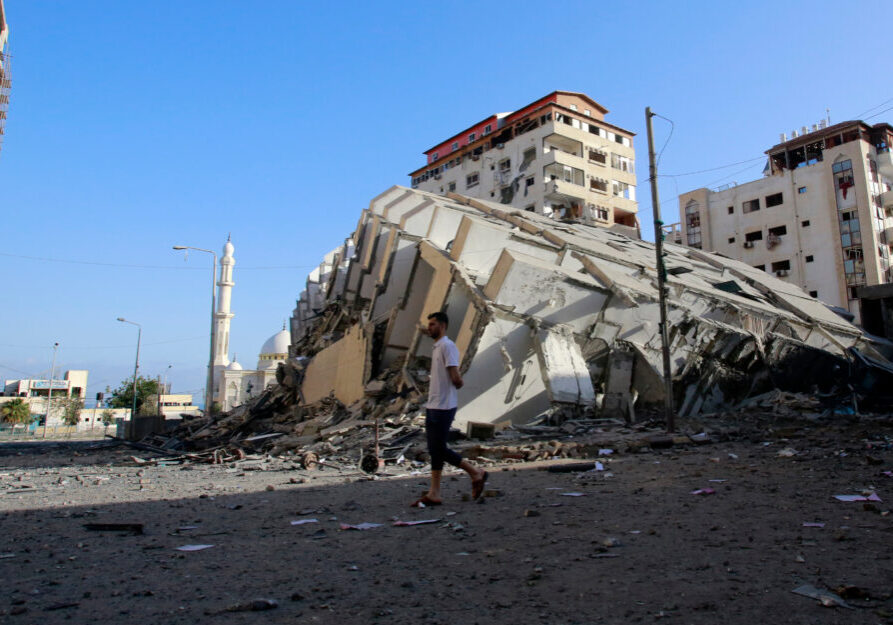Australia/Israel Review
Asia Watch: Spoiler Alert
Oct 29, 2013 | Michael Shannon
Michael Shannon
Spoiler Alert
The Philippines Government and the largest Islamic rebel group, the Moro Islamic Liberation Front (MILF), edge ever closer to finalising a comprehensive peace agreement. Yet, as ever, smaller Islamic forces on the sidelines retain the power to ensure that peace in the southern Philippines remains an elusive dream.
The negotiations being held in Kuala Lumpur, Malaysia, have made “substantial progress” according a joint statement, but with still no finality on the remaining details of power-sharing, territorial jurisdiction and security arrangements.
The MILF, however, has declared that it will effectively cease to exist once the deal is finalised. “Obviously, we are very confident that the Bangsamoro government will be in place by 2016 – so there’s no reason for the MILF to continue existing by then. The MILF is very confident our dreams will be realised,” chief negotiator Mohagher Iqbal said on October 20.
The 2012 Framework Agreement laid down the foundation of a Bangsamoro Islamic sub-state, allowing the Muslim minority a degree of political, cultural and economic autonomy in the South. But the absence of a more inclusive peace process involving all key stakeholders makes President Aquino’s quest for a lasting resolution of the conflict inherently fragile.
Repeatedly ignored by the Government, the MILF’s parent organisation, the Moro National Liberation Front (MNLF), led by the doyen of Moro nationalism, Nur Misuari, recently brought things to a head. Hundreds of their rebel fighters launched a coordinated attack on the Christian-majority Zamboanga City in Mindanao in early September, taking up to 180 residents as hostages and allegedly using them as “human shields”.
What followed led to the displacement of up to 82,000 residents, the destruction of almost 1,000 buildings, and the death of 90 individuals over two weeks of intermittent fighting between rebels and around 3,000 government forces, composed of special police units and the regular army. All the MNLF fighters were either killed, arrested or surrendered themselves to authorities, although a badly scarred city and a deepening divide between Muslim and Christian communities remains.
It was no help at all that other radical rebel groups, the Abu Sayyaf and MILF-breakway Bangsamoro Islamic Freedom Fighters (BIFF), joined the fray and spread the crisis to neighbouring Basilan, which also saw flare-ups in terror attacks and violent skirmishes.
Already burdened by the clean-up of a massive corruption scandal involving dozens of high-ranking officials and veteran legislators, President Aquino may yet need to somehow bring the disaffected Islamist rebel groups into the “peace” tent. A tall order.
What’s in a name?
The Malaysian appellate court’s decision to ban using the word “Allah” to mean “God” by a Roman Catholic newspaper – exposing Malaysia to international derision in the process – is unfathomable without reference to both the politics of the day and the historic context.
It’s well known that the term Allah predates Islam itself and has been in use in Malaysia without trouble since 1615 when the first Portuguese missionaries began converting indigenous peoples, mainly in East Malaysia. About 60% of Christian Malaysians speak only Malay and denote their god as Allah.
The first moves against the use of the term date back to Dr. Mahathir Mohammed assuming the Prime Ministership in 1981, and the issue has been periodically revisited ever since.
The Home Ministry’s court appeal against the use of the word “Allah” in the Catholic Herald has been justified as “protecting harmony of people of all races and religions” and in particular “the sensitivities of Muslims”, according to the Minister, Dr. Ahmad Zahid Hamidi.
The Minister might just as well have confirmed that the ban reflects the Government’s need to play to the identity anxieties of its ethnic-Malay base, pursuing a symbolic issue that appeals to those Malays who – despite decades of affirmative action policies – still feel threatened by the more prosperous and vigorous Chinese and Indian minorities. It was certainly never a religious issue – the Islamist Parti Islam se-Malaysia (PAS) had no interest in such a ban.
Given the mass-desertion of non-Malays from the ruling coalition in the general election earlier this year, the UMNO old guard (including the indefatigable Dr. Mahathir) is pushing old-style sectional politics to shore up its support among the 60% Malay majority. Yet, the tide of Malaysian history is now running against this approach.
Aside from the restriction on terminology used by the Catholic Herald, the ban’s effects on traditional Christian practices will likely be negligible. Christians will still be able to use the word Allah in their worship, the Government has allowed; and Malay-language bibles using the term can be still be imported and printed. Which rather raises the question, given the negative publicity, of whether the issue was worth raising at all.






